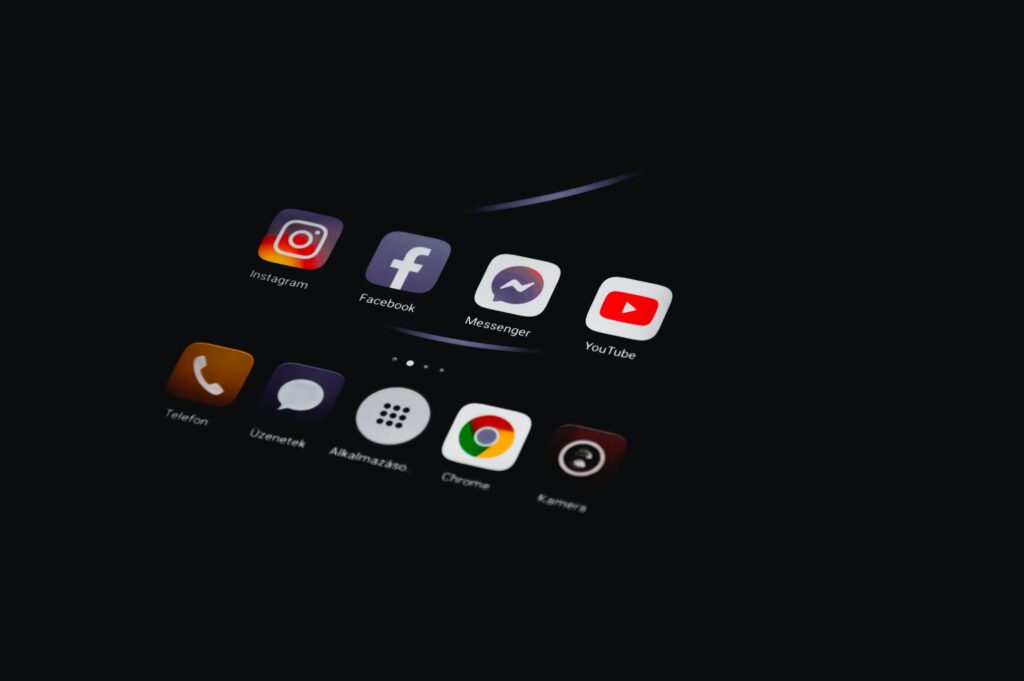Navigating the Social Media Landscape: A Guide to Social Media Networking Etiquette

I think we can all pretty much agree that there is a wrong and right way to get a stranger’s attention on social media. But, there’s a lot more up for debate in the world of professional networking. For instance:
- Is it okay to send a cold DM on LinkedIn?
- Can we talk about politics in a professional setting?
- Is it ethical to reshare someone else’s viral long-form post?
- When is it okay to promote yourself?
In this piece, we’ll cover the basics of social media networking etiquette so you can grow your professional world in the digital realm. Here are the top tips to keep in mind when using social media to boost your career or business.
Be Mindful of Your Digital Footprint
Perhaps the most disturbing aspect of social media is its potential for long-term harm due to a split-second oversight. Think before you post: even a deleted post or comment can be captured by other users and shared virally, so it’s wise to operate from the assumption that any content you share online will live on in perpetuity.
Consider conducting a personal digital audit to assess your online presence. Search your name and its variants on Google and different social media sites from an incognito window to see what others see. If you have specific PR issues to address, you might hire a reputation management company or SEO expert to help build or rebuild your internet presence.
Choose the Right Platforms
Which social media platforms are the most relevant to you? You’ll find a variety of professionals on every platform, but if your target demographic is 50+, you’ll likely find more success on LinkedIn than TikTok — and your interactions with connections will read in a much more genuine way. Don’t overextend yourself just to exist on each platform, either: quality over quantity is a good rule of thumb here.
Complete and Optimize Your Profiles
The more complete and accurate your social profiles, the better. Compare your information across different platforms and find ways to streamline it so your contacts can easily identify you. Use industry-specific language and appropriate hashtags to make your profiles more discoverable. Is it time for new professional headshots? Use different shots from the same photo session across different platforms for consistency in your personal brand.
Be Authentic and Professional in Your Communication
It can be challenging to strike a balance between true authenticity and professionalism in online communication, but it can be done. While it’s always best to avoid jumping into contentious discussions or posting offensive content, you can definitely share your personality and values. People love seeing the human side of others on social media, even (and maybe especially) in a professional setting.
Brainstorm ways to fuse your personality with content that’s still relevant to your industry or career. Draw parallels between your personal and professional lives, and include candid photos to give your posts some spice.
Practice Active Listening and Engagement
Active listening is an interpersonal skill where you first seek to understand what the other person is saying rather than focusing on your potential response or angle. It’s an incredibly powerful skill that can help you build relationships both online and offline. Instead of seeing others’ social media posts as opportunities to chime in with your perspective, try to pay attention to what the other person is saying — and respond thoughtfully and promptly.
Be Respectful of Others’ Boundaries and Privacy
While GDPR regulates data privacy for businesses, the social media privacy landscape for individuals is a bit more like the wild west. How can you respect others’ boundaries on social media? One best practice is to always seek permission before you tag individuals or share their original content. Resharing a popular meme is one thing, but sharing artwork, photography, a long-form post, or any kind of original creative work is generally a faux pas.
Although we think it should go without saying, it’s best to avoid being aggressive, combative, or intrusive toward others — whether that’s on a thread or in a direct message.
Avoid Over-Promotion and Self-Centeredness
We’ve all been on the receiving end of self-promotion on social media. Direct messages from strangers, relentlessly spammy posts about upcoming events or sales, and commenters that always manage to bring the conversation back to their product or service — rarely are these well-timed enough to work or targeted enough to be useful.
When you’re considering promoting your product or service, look at the grand scheme of your social media presence. If every post you make is about you, it’s probably time to change your approach. Sharing professional achievements is just fine, and it’s a big part of the culture on LinkedIn. But you can often gain more traction for your career by sharing others’ achievements, writing helpful or instructional content, and even posting fun memes and stories.
Give Credit Where It’s Due
As a follow-up to the section on respecting boundaries and privacy, one important note about digital content is that copyright restrictions still apply. Just because something exists on the internet doesn’t mean it’s free for anyone to use. If you can attribute a piece of content to its creator, you should acknowledge and tag the original author whenever possible. Avoid plagiarism in your posts, as well; if you are inspired by someone else’s post, consider reposting their work with your own commentary or additional angle on top of it. Acknowledging and respecting others’ work isn’t just a best practice; it’s also a way to build your reputation as a respectful and trustworthy networker.
Handling Disagreements and Negative Interactions
It’s the internet, so disagreements are par for the course. What’s important is knowing how to handle criticism with grace and professionalism. In many cases, especially in professional conversations, there is often room for healthy debate. However, if another person becomes heated, it’s always best to disengage. Never use personal attacks or make blanket statements about others. Because tone is often difficult to discern online if you’re in doubt, it’s better not to participate in any kind of negative conversation — it’s just not worth the potential loss of reputation, which can happen in an instant.
So whether you’re using social media to generate leads or grow your following, use these tips to ensure you’re following the proper social media etiquette. And good luck!






